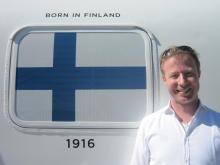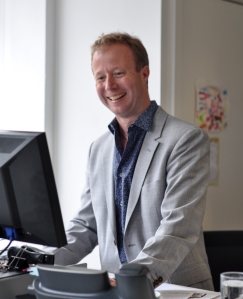Every year in April and May there is a flurry of activity in the office as royalty processing season rolls around. It’s a very busy time for Tommi, as he makes at least 500 individual payments to authors and editors. In this post he answers some of the most common questions he’s asked regarding royalty payments.
How often will I get royalty statements?

Royalty statements are sent out once a year, and are calculated on sales to March 31st. Statements are usually sent at the beginning of May, once we have collated all the sales information.
How often will I receive royalty payments?
Royalty payments are made once per year. We start to make payments as soon as royalty statements have been sent, but with hundreds of authors to pay it takes us some time to work through all of these. We aim to have all payments made by the end of July, but this is not always possible.
What methods of payment are there?
We can pay by either bank transfer, PayPal or cheque. Bank transfer is the easiest for all concerned, although in some countries this can be expensive. We can normally arrange to make payment in your local currency – please contact Tommi if you would like to discuss this.
What information do I need to provide for a bank transfer royalty payment?
The information needed for bank transfers varies from country to country. If your bank is in the UK, we simply need your sort code and account number. For European bank accounts, the IBAN number. In most other countries, if you give us your account number, sort code (or routing code), BIC/SWIFT code where possible, and the name and branch address of your bank, we should have enough information to pay you. If in any doubt at all, contact Tommi.
I have received a cheque in pounds sterling, but my bank says they cannot cash it or it is very expensive to cash. What can I do about this?
We prefer to make payment by bank transfer, and will only pay by cheque in the event that you have either chosen to be paid by cheque, or you have not informed us of your payment preferences. If the amount is too small to cash, we can set your account to only pay once it accrues over a set amount. If you would prefer to be paid by bank transfer, please send us your bank details (see above). We will cancel the cheque that you have received and make a replacement payment by transfer. We do not like to have outstanding cheques on our account, so please do not simply throw the cheque away or ignore it. Instead, please contact Tommi to discuss your options.
Why didn’t I receive a royalty payment this year?
If you received a royalty statement, but have not received a payment, please check the following:
- Is there a minimum payment on your account? This would be detailed on your summary statement as “minimum payment £XX”. We do not pay very small amounts, as bank fees and administration costs would be more than the payment is worth. On older contracts the minimum payment would be set at £25, but with newer contracts it is likely £50 or even £100. We can set this as high as you like, so if bank charges are particularly high in your country, please contact Tommi to discuss this.
- Is the address correct on your royalty statement? If we do not have your correct address it is possible that your payment has been sent to an old address. Please make sure you update your contact details whenever these change.
- Have you changed bank accounts since your last royalty payment? Please make sure you update us whenever you change bank accounts, so that we do not pay the wrong account. If our bank informs us that your account has closed, we will attempt to contact you, but with hundreds of authors to pay, this may take us a long time!
- Have we mailed your office address? If we have sent a cheque to your office, it is possible that it has either got lost in the university internal mail, or if you work from home when students are off campus, you might find the cheque in your in-tray/pigeon hole when you return for the new semester.
If none of these answers fits, please contact Tommi and we can tell you whether or not we have made payment, and if so, what method we used.
Can my royalties be paid to someone else/a charity?
Yes. You can assign your royalties to another person or, should you wish to, you can assign your royalties to a charity. All you need to do is inform us who to pay, and how best to pay them. Our preferred method is payment by bank transfer.
What happens to my royalties if I die?
We normally pay your estate, if we are given details of how to do so. If we do not have any contact details and do not know how to pay your estate, we will set your account to accrue any unpaid royalties until such a time as we are contacted. Should you wish to plan ahead and assign your royalties to a charity in the event of your death, please contact Tommi and we will make a note on your account.
Tommi























